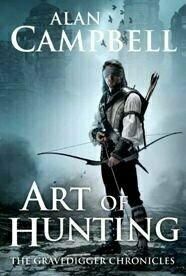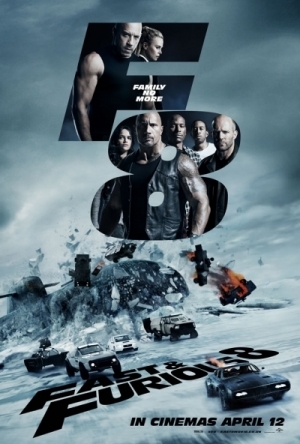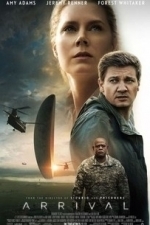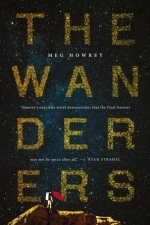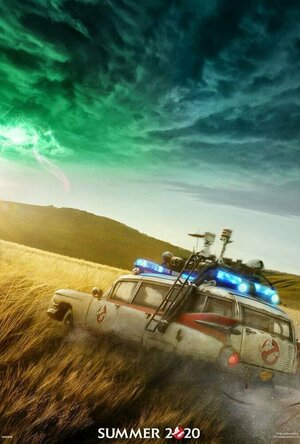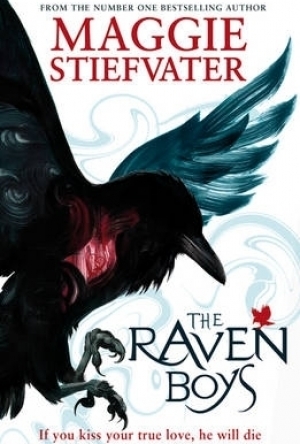Search
Phil Leader (619 KP) rated Art of Hunting (The Gravedigger Chronicles #2) in Books
Nov 8, 2019
I read the first installment of the Gravedigger Chronicles, Sea Of Ghosts a little while ago and the sheer imagination really grabbed my attention. While waiting for the second book I read Campbell's first trilogy and this confirmed a grasp for creating very different, if very dark, fantasy worlds.
The first book follows the story of Thomas Granger, ex-Colonel with the elite 'Gravediggers' army unit now the owner and warden of a decrepit prison in a world that is literally drowning. Humans share the world with the intelligent and long-lived Unmer, for centuries their slaves until a band of telepaths overthrew them. In revenge the Unmer seeded the sees with thousands of small bottles - icusae - which are constantly producing poisonous 'brine', making the seas toxic and raising the sea level.
Granger sets off on a quest to find is estranged daughter Ianthe - herself an incredibly powerful but blind telepath - and so we see this strange and often brutal world, meeting Briana Marks the arrogant head of the telepaths and Ethan Maskeleyne, metaphysicist and hunter of Unmer treasure.
The book ends cataclysmically with Ianthe all but destroying the telepaths' power with her mind and setting the trapped Unmer prince Marquetta free at the same time as her father - now with magical armour and sword - arrives to rescue her himself.
The second book carried straight on from the first, detailing the aftermath of the battle and the Unmer's plans to once again rule, beginning with Marquetta's plan to marry Ianthe. Granger is naturally suspicious of his motives towards his only daughter. Marquetta also needs to eliminate another Unmer lord, Conquillas, who has been hired as an assassin by Briana Marks to kill Marquetta and his uncle. Conquillas is an Unmer rebel who has studied war and hunting until it is an art form to him. Marquetta plans to eliminate him by challenging him to a tournament which is rigged so that Conquillas cannot survive.
Learning of the plans, Granger decides to leave his daughter and travel to find Conquillas and warn him. But soon he has more to worry about as his Unmer sword literally has a mind of its own. Meanwhile Maskeleyne is on his own quest to discover why the unfortunate people who have 'drowned' in the brine seas (but still have a sort of life) are bringing him keys.
As can be seen from the brief description above this is a complex book. Although the story is told from four viewpoints - Granger, Ianthe, Maskeleyne and Briana Marks - the bulk of the story is carried by Granger (on his own quest) and Ianthe (following with the Unmer). Granger is a terrific character - he is gruff and insentimental and is not always a sympathetic character. But he is also very driven and always sees the solution to anything as a straight line, regardless of any obstacles on that path he will just bulldoze straight through them. Ianthe is more subtle as a character because she is essentially tagging along with Marquetta and apart from the marriage plot doesn't really contribute very much.
The world they inhabit is excellent. This is a different kind of fantasy world. Rather than being stuck in medieval worlds as tends to be the case, there is a lot of technology. There are guns and gas cutting torches for example. Everything seems to be very very old and anything enchanted by the Unmer is as dangerous to the innocent wielder as their target.
After the first book it is interesting to see more of the Unmer in action. Marquetta is a proud and determined prince, his uncle fills the role of scheming manipulator well and it is not clear if Marquetta follows his uncle or is merely another pawn in the play. Conquillas is also well drawn for the few scenes he is in, the consumate warrior and hunter while still being otherworldly and cold towards the humans that he deals with. Maskeleyne also comes to the fore in this book after being something of a villain in the first book in this book he is not at odds with the other main characters and so is a much more rounded person rather than a cipher to explain Unmer artifacts and move the plot along.
Yes this is a hard read; the chapters are long (there are only 8 chapters in the book) which means it is a long time between breaks in the narrative and the start does take a long long time to get going although a lot of the information is vital in setting up the rest of the book. Once it gets going however it flows well. In fact I would say the tournament at the end was a little rushed - some more insight into the early rounds would have been interesting I think - but as the main point is to get the final showdown this can be excused.
Overall, a fantastic second part and I eagerly look forward the the third installment.
Rating: Some slight swearing and crude references
The first book follows the story of Thomas Granger, ex-Colonel with the elite 'Gravediggers' army unit now the owner and warden of a decrepit prison in a world that is literally drowning. Humans share the world with the intelligent and long-lived Unmer, for centuries their slaves until a band of telepaths overthrew them. In revenge the Unmer seeded the sees with thousands of small bottles - icusae - which are constantly producing poisonous 'brine', making the seas toxic and raising the sea level.
Granger sets off on a quest to find is estranged daughter Ianthe - herself an incredibly powerful but blind telepath - and so we see this strange and often brutal world, meeting Briana Marks the arrogant head of the telepaths and Ethan Maskeleyne, metaphysicist and hunter of Unmer treasure.
The book ends cataclysmically with Ianthe all but destroying the telepaths' power with her mind and setting the trapped Unmer prince Marquetta free at the same time as her father - now with magical armour and sword - arrives to rescue her himself.
The second book carried straight on from the first, detailing the aftermath of the battle and the Unmer's plans to once again rule, beginning with Marquetta's plan to marry Ianthe. Granger is naturally suspicious of his motives towards his only daughter. Marquetta also needs to eliminate another Unmer lord, Conquillas, who has been hired as an assassin by Briana Marks to kill Marquetta and his uncle. Conquillas is an Unmer rebel who has studied war and hunting until it is an art form to him. Marquetta plans to eliminate him by challenging him to a tournament which is rigged so that Conquillas cannot survive.
Learning of the plans, Granger decides to leave his daughter and travel to find Conquillas and warn him. But soon he has more to worry about as his Unmer sword literally has a mind of its own. Meanwhile Maskeleyne is on his own quest to discover why the unfortunate people who have 'drowned' in the brine seas (but still have a sort of life) are bringing him keys.
As can be seen from the brief description above this is a complex book. Although the story is told from four viewpoints - Granger, Ianthe, Maskeleyne and Briana Marks - the bulk of the story is carried by Granger (on his own quest) and Ianthe (following with the Unmer). Granger is a terrific character - he is gruff and insentimental and is not always a sympathetic character. But he is also very driven and always sees the solution to anything as a straight line, regardless of any obstacles on that path he will just bulldoze straight through them. Ianthe is more subtle as a character because she is essentially tagging along with Marquetta and apart from the marriage plot doesn't really contribute very much.
The world they inhabit is excellent. This is a different kind of fantasy world. Rather than being stuck in medieval worlds as tends to be the case, there is a lot of technology. There are guns and gas cutting torches for example. Everything seems to be very very old and anything enchanted by the Unmer is as dangerous to the innocent wielder as their target.
After the first book it is interesting to see more of the Unmer in action. Marquetta is a proud and determined prince, his uncle fills the role of scheming manipulator well and it is not clear if Marquetta follows his uncle or is merely another pawn in the play. Conquillas is also well drawn for the few scenes he is in, the consumate warrior and hunter while still being otherworldly and cold towards the humans that he deals with. Maskeleyne also comes to the fore in this book after being something of a villain in the first book in this book he is not at odds with the other main characters and so is a much more rounded person rather than a cipher to explain Unmer artifacts and move the plot along.
Yes this is a hard read; the chapters are long (there are only 8 chapters in the book) which means it is a long time between breaks in the narrative and the start does take a long long time to get going although a lot of the information is vital in setting up the rest of the book. Once it gets going however it flows well. In fact I would say the tournament at the end was a little rushed - some more insight into the early rounds would have been interesting I think - but as the main point is to get the final showdown this can be excused.
Overall, a fantastic second part and I eagerly look forward the the third installment.
Rating: Some slight swearing and crude references
Bob Mann (459 KP) rated The Fate of the Furious (2017) in Movies
Sep 29, 2021
Blood is thicker than Diesel.
All work and no play makes bob-the-movie-man a tardy reviewer. Still, what better way to break the fast than with “Fast and Furious 8” (aka “The Fate of the Furious”)?
Well, quite a lot of things actually!
Now, I have a confession to make (and I know for some this will be the equivalent of an appalling statement like “I’ve never seen Star Wars”). I have actually never ever seen Fast and Furious 1 through 7! (If it’s any mitigation to this cinematic crime, I did see the F-and-F wannabe “Need for Speed“).
So I was going to be completely lost with the “plot” right? Well actually, no. It was pretty easy to jump in and follow as a piece of popcorn nonsense.
The M25 water main burst was a real bitch for the Monday morning rush-hour.
For nonsense it is (hence the “rabbit ears” round the word “plot” above). The story isn’t just a bit far-fetched. It’s bat-shit crazy where the bat in question has downed a questionable vindaloo two hours earlier!
Dom (Vin Diesel) has turned on his “family”, including his squeeze, the lovely Letty (Michelle Rodriguez), and Hobbs (Dwayne Johnson, “San Andreas“), to team with the above-the-law (and above the clouds) cyber-super-terrorist Cipher (Charlize Theron, “Mad Max: Fury Road“). They have teamed up, apparently, for no other reason than to allow Cipher to ‘kick some global ass’ with a nuclear threat. But given his caring and sharing side, why the sudden betrayal of his nearest and dearest by Dom?
Ice Queen Metallica fan Theron, showing off her hardware.
Where do you begin with the nonsensical story? Jumping from Cuba (with some admittedly fun scenes, but shamelessly objectifying scantily-clad women) via Berlin and New York to the icy wastes of Siberia, it’s just an excuse to show fast cars doing ludicrously unlikely things. There is zero logic within any of the script. Here are just a handful of examples:
the team know (through enormous jumps of speculation) to be present at a particular location in the world and at exactly the time that Dom is there (arrive, look through binoculars, “Oh, there he is”!);
all cars can be automatically hijacked and remotely driven (who knew), but NOT those of the team (obviously);
fast cars/tanks/etc can be magicked from New York to Siberia (wot, no Hertz Siberia available?);
Russian nuclear codes are stolen, so obviously they can’t be changed?
a nuclear submarine is out of the water on wooden blocks, but spin the propeller really REALLY fast and it can suddenly be sailing away.
Muscle for muscle it never looked like being a fair fight.
I appreciate I am being enormously po-faced about this, and this is designed as pure escapism. But is there REALLY any need for this to be such mindless escapism? The director (Gary Gray, “The Italian Job”) and writer (Chris Morgan, responsible for parts 6 and 7) should credit their audience with rather more in the way of intelligence.
Diesel and Johnson are never going to set the acting ablaze, but Rodriquez (“Lost”) is as watchable as ever. Theron has fun with her villainy and the supporting turns by Tyrese Gibson and Ludacris are enjoyable. Nathalie Emmanuel though as Ramsey seems as uncomfortable with her “sexy English” stereotype as she should be.
A long way from Brookside. Nathalie Emmanuel uncomfortable as “the sexy one”.
Luke Evans (“The Hobbit“), Kurt Russell (“Deepwater Horizon“) and Helen Mirren (“Eye in the Sky“) turn up in entertaining but underused cameos, but it is Jason Statham as Deckard that has the most fun in the whole film, and his scenes – done largely for comic effect – are the best part of the movie. (But “math” Jason? “MATH”?? I hope your old maths teacher back in London doesn’t get to see this film).
Parking enforcement by the City Council was getting more and more stringent.
If you’re willing to park your brain at the door for two hours then it has some fun moments. But I felt the damage to my IQ might not have been worth the risk, and this really didn’t fill my cinematic tank.
Well, quite a lot of things actually!
Now, I have a confession to make (and I know for some this will be the equivalent of an appalling statement like “I’ve never seen Star Wars”). I have actually never ever seen Fast and Furious 1 through 7! (If it’s any mitigation to this cinematic crime, I did see the F-and-F wannabe “Need for Speed“).
So I was going to be completely lost with the “plot” right? Well actually, no. It was pretty easy to jump in and follow as a piece of popcorn nonsense.
The M25 water main burst was a real bitch for the Monday morning rush-hour.
For nonsense it is (hence the “rabbit ears” round the word “plot” above). The story isn’t just a bit far-fetched. It’s bat-shit crazy where the bat in question has downed a questionable vindaloo two hours earlier!
Dom (Vin Diesel) has turned on his “family”, including his squeeze, the lovely Letty (Michelle Rodriguez), and Hobbs (Dwayne Johnson, “San Andreas“), to team with the above-the-law (and above the clouds) cyber-super-terrorist Cipher (Charlize Theron, “Mad Max: Fury Road“). They have teamed up, apparently, for no other reason than to allow Cipher to ‘kick some global ass’ with a nuclear threat. But given his caring and sharing side, why the sudden betrayal of his nearest and dearest by Dom?
Ice Queen Metallica fan Theron, showing off her hardware.
Where do you begin with the nonsensical story? Jumping from Cuba (with some admittedly fun scenes, but shamelessly objectifying scantily-clad women) via Berlin and New York to the icy wastes of Siberia, it’s just an excuse to show fast cars doing ludicrously unlikely things. There is zero logic within any of the script. Here are just a handful of examples:
the team know (through enormous jumps of speculation) to be present at a particular location in the world and at exactly the time that Dom is there (arrive, look through binoculars, “Oh, there he is”!);
all cars can be automatically hijacked and remotely driven (who knew), but NOT those of the team (obviously);
fast cars/tanks/etc can be magicked from New York to Siberia (wot, no Hertz Siberia available?);
Russian nuclear codes are stolen, so obviously they can’t be changed?
a nuclear submarine is out of the water on wooden blocks, but spin the propeller really REALLY fast and it can suddenly be sailing away.
Muscle for muscle it never looked like being a fair fight.
I appreciate I am being enormously po-faced about this, and this is designed as pure escapism. But is there REALLY any need for this to be such mindless escapism? The director (Gary Gray, “The Italian Job”) and writer (Chris Morgan, responsible for parts 6 and 7) should credit their audience with rather more in the way of intelligence.
Diesel and Johnson are never going to set the acting ablaze, but Rodriquez (“Lost”) is as watchable as ever. Theron has fun with her villainy and the supporting turns by Tyrese Gibson and Ludacris are enjoyable. Nathalie Emmanuel though as Ramsey seems as uncomfortable with her “sexy English” stereotype as she should be.
A long way from Brookside. Nathalie Emmanuel uncomfortable as “the sexy one”.
Luke Evans (“The Hobbit“), Kurt Russell (“Deepwater Horizon“) and Helen Mirren (“Eye in the Sky“) turn up in entertaining but underused cameos, but it is Jason Statham as Deckard that has the most fun in the whole film, and his scenes – done largely for comic effect – are the best part of the movie. (But “math” Jason? “MATH”?? I hope your old maths teacher back in London doesn’t get to see this film).
Parking enforcement by the City Council was getting more and more stringent.
If you’re willing to park your brain at the door for two hours then it has some fun moments. But I felt the damage to my IQ might not have been worth the risk, and this really didn’t fill my cinematic tank.
Bob Mann (459 KP) rated Arrival (2016) in Movies
Sep 29, 2021
Wow – what a surprise.
Sometimes I can get very irritated by a trailer for giving too much away (case in point, “Room” – which I recut – and more recently “Passengers”). Sometimes I can get very excited by a really good teaser trailer (case in point, “10 Cloverfield Lane”). But most of the time a “ho hum” trailer typically drives the expectation of a “ho hum” film: “Jack Reacher: Never Look Back” being a good recent example. Then there is “Arrival”…
Because the trailer for “Arrival” belies absolutely nothing about the depth and complexity of the film. At face value, it looks like a dubious “Close Encounters” wannabe, with a threat of movement towards the likes of “Independence Day” and “The 5th Wave”. Actually what you get is a film that approaches the grandeur of “Close Encounters” but interlaces it with the intellectual depth of “Inception”, the mystery of “Intersteller” and a heavy emotional jolt or two of “Up”.
Amy Adams (“Batman vs Superman”) plays Dr Louise Banks, a language teacher at a US university facing a bunch of particularly disengaged students one morning. For good reason since world news is afoot. Twelve alien craft have positioned themselves strategically around the world, hanging a few feet from the ground in just the sort of way that bricks don’t. Banks is approached by Colonel Weber (Forest Whitaker) and offered the job of trying to communicate with the aliens: where did they come from? why are they here? Banks faces the biggest challenge of her academic career in trying to devise a strategy for communication without any foundation of knowledge on what level communication even works at for them. Assisted by Ian Donelly (Jeremy Renner, “Mission Impossible IV/V”, “Avengers”), a theoretical physicist, the pair try to crack the code against a deadline set by the inexorable rise of international tensions – driven by China’s General Chang (Tzi Ma, “Veep”; “24”).
Steven Spielberg made a rare error of judgement by adding scenes in his “Special Edition” of “Close Encounters of the Third Kind” showing everyman power guy Roy Neary (Richard Dreyfuss) entering the alien spacecraft. Some things are best left to the imagination. Here, a reprise of that mistake seems inevitable, but – perversely – seems to be pulled off with mastery and aplomb. The aliens are well rendered, and the small scale nature of the set (I’m sure I’ve been in similar dingy waiting rooms in UK railway stations!) is cleverly handled by the environmental conditions.
But where the screenplay really kills it is in the emergence of the real power unleashed by the translation work. To say any more would deliver spoilers, which I won’t do. But this is a masterly piece of science-fiction writing. The screenplay was by Eric Heisserer – someone with a limited scriptwriting CV of horror film reboots/sequels such as “Final Destination 5”, “The Thing” and “A Nightmare on Elm Street” – so the portents were not good, which just adds to the surprise. If I were to be critical, some of the dialogue at times is a little TOO clever for its own good and smacks of Aaron Sorkin over-exposition: the comment about “They have a word for it in Hungary” for example went right over my head.
Denis Villeneuve (“Sicario”) deftly directs, leaving the pace of the story glacially slow in places to let the audience deduce what is going on at their own speed. This will NOT be to the liking of movie fans who like their films in a wham-bam of CGI, but was very much to my liking. The film in fact has very little exposition, giving you lots to think about after the credits roll: there were elements of the story (such as her book) that still generated debate with my better half on the drive home.
Amy Adams and Jeremy Renner are first rate and an effectively moody score by Jóhann Jóhannsson (“Sicario”; “The Theory of Everything”) round off the other high-point credits for me.
An extraordinary film, this is a must see for sci-fi fans but also for lovers of good cinema and well-crafted stories.
Because the trailer for “Arrival” belies absolutely nothing about the depth and complexity of the film. At face value, it looks like a dubious “Close Encounters” wannabe, with a threat of movement towards the likes of “Independence Day” and “The 5th Wave”. Actually what you get is a film that approaches the grandeur of “Close Encounters” but interlaces it with the intellectual depth of “Inception”, the mystery of “Intersteller” and a heavy emotional jolt or two of “Up”.
Amy Adams (“Batman vs Superman”) plays Dr Louise Banks, a language teacher at a US university facing a bunch of particularly disengaged students one morning. For good reason since world news is afoot. Twelve alien craft have positioned themselves strategically around the world, hanging a few feet from the ground in just the sort of way that bricks don’t. Banks is approached by Colonel Weber (Forest Whitaker) and offered the job of trying to communicate with the aliens: where did they come from? why are they here? Banks faces the biggest challenge of her academic career in trying to devise a strategy for communication without any foundation of knowledge on what level communication even works at for them. Assisted by Ian Donelly (Jeremy Renner, “Mission Impossible IV/V”, “Avengers”), a theoretical physicist, the pair try to crack the code against a deadline set by the inexorable rise of international tensions – driven by China’s General Chang (Tzi Ma, “Veep”; “24”).
Steven Spielberg made a rare error of judgement by adding scenes in his “Special Edition” of “Close Encounters of the Third Kind” showing everyman power guy Roy Neary (Richard Dreyfuss) entering the alien spacecraft. Some things are best left to the imagination. Here, a reprise of that mistake seems inevitable, but – perversely – seems to be pulled off with mastery and aplomb. The aliens are well rendered, and the small scale nature of the set (I’m sure I’ve been in similar dingy waiting rooms in UK railway stations!) is cleverly handled by the environmental conditions.
But where the screenplay really kills it is in the emergence of the real power unleashed by the translation work. To say any more would deliver spoilers, which I won’t do. But this is a masterly piece of science-fiction writing. The screenplay was by Eric Heisserer – someone with a limited scriptwriting CV of horror film reboots/sequels such as “Final Destination 5”, “The Thing” and “A Nightmare on Elm Street” – so the portents were not good, which just adds to the surprise. If I were to be critical, some of the dialogue at times is a little TOO clever for its own good and smacks of Aaron Sorkin over-exposition: the comment about “They have a word for it in Hungary” for example went right over my head.
Denis Villeneuve (“Sicario”) deftly directs, leaving the pace of the story glacially slow in places to let the audience deduce what is going on at their own speed. This will NOT be to the liking of movie fans who like their films in a wham-bam of CGI, but was very much to my liking. The film in fact has very little exposition, giving you lots to think about after the credits roll: there were elements of the story (such as her book) that still generated debate with my better half on the drive home.
Amy Adams and Jeremy Renner are first rate and an effectively moody score by Jóhann Jóhannsson (“Sicario”; “The Theory of Everything”) round off the other high-point credits for me.
An extraordinary film, this is a must see for sci-fi fans but also for lovers of good cinema and well-crafted stories.
Kyera (8 KP) rated When Dimple Met Rishi in Books
Jan 31, 2018
When Dimple Met Rishi by Sandhya Menon is a contemporary book set in San Francisco. Our two main characters, Dimple and Rishi are Indian-American and this book is such a lovely addition to the more diverse YA reads that we have been getting lately. Dimple’s parents don’t understand her love of coding and desire to do that for a living. They want her to find the Ideal Indian Husband, get married and settle down. To Dimple, that sounds like the most horrifying loss of her identity and freedom, so she’s very surprised when her parents agree to let her attend a coding camp over the summer at SFSU.
Rishi is the perfect eldest son, sure of his duties and ready to fulfill his family’s wishes. He plans to attend MIT in the coming year to major in engineering and computer science. Even though he has other interests, he knows that they are not viable career options and will have to support his family in the future. His parents send him to the same coding camp so that he can meet and get to know his (possible) future wife. It is not an official arranged marriage, but their parents each have decided that they would be good together.
Unlike Rishi, Dimple does not know of her parents' plan and is entirely freaked out when a stranger comes up to her and addresses her as his future wife. Their first interaction is hilarious and sets the stage for a fantastic book to come. Although Dimple is vehemently opposed to Rishi’s attendance as she feels tricked, she knows that it would be unkind to demand that he leave. The two end up spending more time together and become friends. Their friendship was authentic and quite adorable, even though on the surface they don’t have much in common.
Celia, Dimple’s roommate and Ashish, Rishi’s brother are really nice supporting characters. Celia gets wrapped up in the idea of fitting in and we watch as she learns to be herself. She has a number of rapid changes of opinion and emotion that aren’t entirely explained. Sometimes they seem like they come out of nowhere and there isn’t enough context or backstory to support them. That feels like one aspect of the story that could be improved.
Ashish is initially portrayed as the lazy brother who does not care what his parents want for him. He is most passionate about basketball and spends his time doing things that Rishi does not always approve of. It was nice to see their brotherly bond evolve over the course of the novel. Rishi learns to support his brother and judge him less, as a result, their relationship becomes stronger. They learn more about each other and it was nice to see a positive familial relationship depicted. Even his parents are ultimately supportive as they just want their children to be happy.
I would highly recommend this book to young adult/teen readers who enjoy diverse reads, contemporary novels, character-driven plots and coming of age stories. The characters go on a lovely journey of self-discovery and have a lot of enjoyable (and funny) scenes along the way.
Rishi is the perfect eldest son, sure of his duties and ready to fulfill his family’s wishes. He plans to attend MIT in the coming year to major in engineering and computer science. Even though he has other interests, he knows that they are not viable career options and will have to support his family in the future. His parents send him to the same coding camp so that he can meet and get to know his (possible) future wife. It is not an official arranged marriage, but their parents each have decided that they would be good together.
Unlike Rishi, Dimple does not know of her parents' plan and is entirely freaked out when a stranger comes up to her and addresses her as his future wife. Their first interaction is hilarious and sets the stage for a fantastic book to come. Although Dimple is vehemently opposed to Rishi’s attendance as she feels tricked, she knows that it would be unkind to demand that he leave. The two end up spending more time together and become friends. Their friendship was authentic and quite adorable, even though on the surface they don’t have much in common.
Celia, Dimple’s roommate and Ashish, Rishi’s brother are really nice supporting characters. Celia gets wrapped up in the idea of fitting in and we watch as she learns to be herself. She has a number of rapid changes of opinion and emotion that aren’t entirely explained. Sometimes they seem like they come out of nowhere and there isn’t enough context or backstory to support them. That feels like one aspect of the story that could be improved.
Ashish is initially portrayed as the lazy brother who does not care what his parents want for him. He is most passionate about basketball and spends his time doing things that Rishi does not always approve of. It was nice to see their brotherly bond evolve over the course of the novel. Rishi learns to support his brother and judge him less, as a result, their relationship becomes stronger. They learn more about each other and it was nice to see a positive familial relationship depicted. Even his parents are ultimately supportive as they just want their children to be happy.
I would highly recommend this book to young adult/teen readers who enjoy diverse reads, contemporary novels, character-driven plots and coming of age stories. The characters go on a lovely journey of self-discovery and have a lot of enjoyable (and funny) scenes along the way.
Hazel (1853 KP) rated The Wanderers in Books
Dec 17, 2018
<i>I received this book for free through Goodreads First Reads.
“As they look to the stars, what are they missing back home?” </i>In a handful of year’s time, it can be presumed that dreams of humans on Mars will become closer to a reality. In Meg Howey’s <i>The Wanderers</i>, the time has come to select the potential candidates to participate in the first crewed mission to the Red Planet. Yet, as the astronauts prepare to walk among the stars, their families are left to consider a life without them.
The story is told through the perspectives of seven characters. Perhaps the most important are the three astronauts: Helen, Sergei and Yoshi, who are enclosed in a tiny mock-spacecraft, as they practice the hypothetical challenges and experiences they may encounter on a real trip to Mars. The remaining chapters are shared out amongst family members: Mireille, Helen’s adult daughter; Dmitri, Sergei’s fifteen-year old son; and Madoka, Yoshi’s wife – the final character being Luke, a psychiatrist tasked with observing the mental state of the astronauts throughout the experiment.
Interestingly, those being left behind are less concerned about their parent or spouse, choosing to focus on their own, everyday life, problems. Left to their own devices, they worry about their careers, their sexuality and the ways in which others perceive them. All, presumably as a result of the lack of contact with their significant family member, have become capable of surviving independently, however do not appear to realize how lonely they are.
The astronauts, on the other hand, are preoccupied with thoughts of space, concentrating so hard on the mission ahead of them that they fail to think of anything else. However, after months of only having each other for company, their thoughts begin to drift in the direction of home, their childhood, worries about their family, guilt – all notions that are fairly alien to the career driven characters.
Whilst it is interesting to witness the character developments, there is not a significant storyline. The book only encompasses the training period for the prospective space mission, and does not appear to have a substantial conclusion. Whether the astronauts eventually make it to Mars, and whether their consciences encourage them to behave differently towards their families, remains unknown.
<i>The Wanderers</i> has the essence of a work of fiction that English Literature students or professors would enjoy pulling apart, examining the language and literary techniques as they seek the understanding of the various emotions portrayed. Unfortunately, the majority will not have chosen to read this book for this precise purpose, expecting a science fiction novel full of excitement and interesting plot. Without either of these elements taking precedence, many are bound to be disappointed.
My rating for this book (two of five stars) is on the basis of the storyline, rather than the concept of family versus space. Yes, Howey writes well, is informed of the ins and outs of space programmes, and is knowledgeable enough to write an accurate representation of an astronaut’s experience, however as a form of entertainment, it is considerably lacking. Those expecting a narrative similar to other well-written science fiction novels will be sorely disappointed.
“As they look to the stars, what are they missing back home?” </i>In a handful of year’s time, it can be presumed that dreams of humans on Mars will become closer to a reality. In Meg Howey’s <i>The Wanderers</i>, the time has come to select the potential candidates to participate in the first crewed mission to the Red Planet. Yet, as the astronauts prepare to walk among the stars, their families are left to consider a life without them.
The story is told through the perspectives of seven characters. Perhaps the most important are the three astronauts: Helen, Sergei and Yoshi, who are enclosed in a tiny mock-spacecraft, as they practice the hypothetical challenges and experiences they may encounter on a real trip to Mars. The remaining chapters are shared out amongst family members: Mireille, Helen’s adult daughter; Dmitri, Sergei’s fifteen-year old son; and Madoka, Yoshi’s wife – the final character being Luke, a psychiatrist tasked with observing the mental state of the astronauts throughout the experiment.
Interestingly, those being left behind are less concerned about their parent or spouse, choosing to focus on their own, everyday life, problems. Left to their own devices, they worry about their careers, their sexuality and the ways in which others perceive them. All, presumably as a result of the lack of contact with their significant family member, have become capable of surviving independently, however do not appear to realize how lonely they are.
The astronauts, on the other hand, are preoccupied with thoughts of space, concentrating so hard on the mission ahead of them that they fail to think of anything else. However, after months of only having each other for company, their thoughts begin to drift in the direction of home, their childhood, worries about their family, guilt – all notions that are fairly alien to the career driven characters.
Whilst it is interesting to witness the character developments, there is not a significant storyline. The book only encompasses the training period for the prospective space mission, and does not appear to have a substantial conclusion. Whether the astronauts eventually make it to Mars, and whether their consciences encourage them to behave differently towards their families, remains unknown.
<i>The Wanderers</i> has the essence of a work of fiction that English Literature students or professors would enjoy pulling apart, examining the language and literary techniques as they seek the understanding of the various emotions portrayed. Unfortunately, the majority will not have chosen to read this book for this precise purpose, expecting a science fiction novel full of excitement and interesting plot. Without either of these elements taking precedence, many are bound to be disappointed.
My rating for this book (two of five stars) is on the basis of the storyline, rather than the concept of family versus space. Yes, Howey writes well, is informed of the ins and outs of space programmes, and is knowledgeable enough to write an accurate representation of an astronaut’s experience, however as a form of entertainment, it is considerably lacking. Those expecting a narrative similar to other well-written science fiction novels will be sorely disappointed.
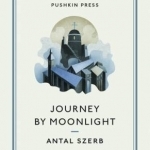
Journey by Moonlight
Antal Szerb, Len Rix and Eoin Ryan
Book
A major classic of 1930s literature, Antal Szerb's Journey by Moonlight (Utas es Holdvilag) is the...
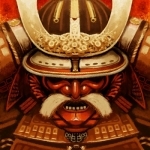
Total War Battles: SHOGUN
Games and Entertainment
App
BUILD, BATTLE AND AVENGE! Specifically developed for touchscreen platforms, Total War Battles™:...
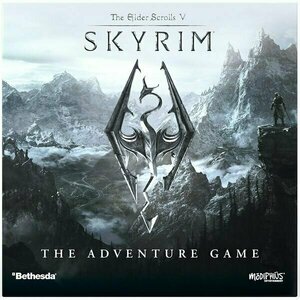
The Elder Scrolls V: Skyrim - The Boardgame
Tabletop Game
ADVENTURES IN THE WORLD OF SKYRIM! Before the Dragonborn came to Skyrim…. You are surviving...
Gareth von Kallenbach (980 KP) rated Ghostbusters: Afterlife (2021) in Movies
Nov 16, 2021
Back in 1984 when big hair and neon were the norms; a movie appeared that soon became a cultural phenomenon. The movie involved a team of unlikely Paranormal Investigators and the mix of comedy, FX, and Ghosts turned the movie into a smash hit and a Pop Culture mainstay. The abundance of products that followed and the inescapable theme song and tagline soon gave rise to a sequel which while a success; did not resonate the way the original film had and thus the “Ghostbusters” film franchise became dormant.
While a successful video game and merchandise line kept the franchise alive; the 2016 reboot with an all-female team failed to capture the magic at the box office and again put the franchise’s cinematic future in question.
Thankfully after several delays due to the Covid 19 Pandemic; “Ghostbusters Afterlife” has arrived and is the worthy sequel that does justice to the original film and sets the stage well for future cinematic exploits.
The film follows a down on her luck mother named Callie )Carrie Coon) and her children Trevor (Finn Wolfhard); and Phoebe (Mckenna Grace), as they are forced to move to a dilapidated farm in rural Oklahoma following the passing of Callie’s estranged father and her subsequent eviction.
A series of unexplained earthquakes clues the smart and precocious Phoebe that something is up and with her new friend Podcast (Logan Kim), and teacher Mr. Grooberson (Paul Rudd); help her uncover her connection to the original Ghostbusters and the abundance and significance of the gear that her Grandfather has left on the farm.
Things soon take a turn for the worse and despite skeptical locals and the emerging danger, Phoebe, Trevor, and their friends have to battle the forces of evil to save the world.
The movie takes its time getting to the action and spends plenty of time establishing the characters, their motivations, and their relationships with one another. There are abundant homages to the original film; some of which are very subtle and clever but never seem gratuitous or tacked on.
The film also does not rely on the FX to tell the tale as while there are some solid effects in the film; this is a character-driven tale and the new cast works well with some surprise guests who pop up throughout the film.
Director Jason Reitman; son of the Director of the original film; clearly knows and loves the material as he not only helped craft the story but deftly weaves a new tale into the franchise which also fits well with the first film and does not attempt to reboot but rather continue the franchise.
There are two extra scenes in the credits that you will not want to miss as not only are they great fun; but also tease of future adventures to come.
The film also has a few touching moments that caused some unexpected emotion from the audience at our Press Screening and helped establish “Ghostbusters Afterlife” as not only a winning entry into the series but also one of the most enjoyable films of the year.
4.5 stars out of 5.
While a successful video game and merchandise line kept the franchise alive; the 2016 reboot with an all-female team failed to capture the magic at the box office and again put the franchise’s cinematic future in question.
Thankfully after several delays due to the Covid 19 Pandemic; “Ghostbusters Afterlife” has arrived and is the worthy sequel that does justice to the original film and sets the stage well for future cinematic exploits.
The film follows a down on her luck mother named Callie )Carrie Coon) and her children Trevor (Finn Wolfhard); and Phoebe (Mckenna Grace), as they are forced to move to a dilapidated farm in rural Oklahoma following the passing of Callie’s estranged father and her subsequent eviction.
A series of unexplained earthquakes clues the smart and precocious Phoebe that something is up and with her new friend Podcast (Logan Kim), and teacher Mr. Grooberson (Paul Rudd); help her uncover her connection to the original Ghostbusters and the abundance and significance of the gear that her Grandfather has left on the farm.
Things soon take a turn for the worse and despite skeptical locals and the emerging danger, Phoebe, Trevor, and their friends have to battle the forces of evil to save the world.
The movie takes its time getting to the action and spends plenty of time establishing the characters, their motivations, and their relationships with one another. There are abundant homages to the original film; some of which are very subtle and clever but never seem gratuitous or tacked on.
The film also does not rely on the FX to tell the tale as while there are some solid effects in the film; this is a character-driven tale and the new cast works well with some surprise guests who pop up throughout the film.
Director Jason Reitman; son of the Director of the original film; clearly knows and loves the material as he not only helped craft the story but deftly weaves a new tale into the franchise which also fits well with the first film and does not attempt to reboot but rather continue the franchise.
There are two extra scenes in the credits that you will not want to miss as not only are they great fun; but also tease of future adventures to come.
The film also has a few touching moments that caused some unexpected emotion from the audience at our Press Screening and helped establish “Ghostbusters Afterlife” as not only a winning entry into the series but also one of the most enjoyable films of the year.
4.5 stars out of 5.
Becs (244 KP) rated The Raven Boys in Books
Sep 22, 2019
Ronan Lynch, Adam Parrish, and Noah Czerny made this novel (1 more)
The rollercoaster of emotions you feel
The villain didn't offer as much as I'd like but it was too big of a letdown (1 more)
The MC wasn't my favorite but she had good complexities that made her unique
Deserves all the hype!
You can also find this review on my blog: bookingwayreads.wordpress.com
TRIGGER WARNINGS: suicidal ideation, (past) suicide attempt, violence, guns, death
REVIEW: Y’all, I think I found a new favorite series. This series… the characters… the world-building… the character development… UGH I absolutely adore everything about it. Ronan Lynch has my heart and Noah Czerny is such a babie and I want to protect him forever and ever. The Raven Boys gave me so much more than what I was expecting.
The Raven Boys follows Blue Sargent. But unlike her family of physics, seers, and clairvoyants, Blue has no magical abilities. She has been warned all her life that the first person she kisses, will die. One night, she sees a boy on the Corpse Road and this is a sign. The only way that a non seer sees a ghost is if that ghost is either a true love or the non-seer killed them. This is where the Raven Boys come into play.
The Raven Boys is basically the name of four boys that attend Aglionby – Gansey Richard III, Adam Parrish, Ronan Lynch, and Noah Czerny. Gansey is the so-called leader of the group and he’s on a mission to find the final resting place of Glendower, a Welsh King who passed away in Henrietta. There is a legend that says if he’s awoken, he grants the person who woke him a “favor”. Gansey wants to be the person to wake Glendower but he isn’t the only one looking for him.
I didn’t know too much about this series other than the writing style wasn’t the greatest. I didn’t really see a problem with this as I listened to them on audiobook. The narrator was not my favorite and some of the voices he used I didn’t feel worked with the characters. But all in all, I was really invested in the plot and paranormal aspect of Blue and the Raven Boys.
Speaking of Blue and the Raven Boys, they were so well-written! Each character within this novel was complex and had their own unique peculiarities that made them extremely interesting to read about. They were also really relatable. Even the situations that they each experienced, felt real and not at all cliche’d. Plus, all the sarcastic remarks had me howling with laughter, especially Ronan and Gansey’s friendship. It was *chefs kiss*
“We have to be back in three hours,” Ronan said. “I just fed Chainsaw but she’ll need it again.”
“This,” Gansey replied “is precisely why I didn’t want to have a baby with you.”
The characters that I found the most interesting, were honestly Ronan, Noah, and Adam. Blue was a great protagonist and had her complexities, but I didn’t feel anything special for her. Gansey was also an interesting character but I felt that the book revolved a bit too much about him and his mission. I wanted more scenes with Noah, Adam, and Ronan.
Ronan gave me all the bad boy vibes and has my heart while Noah is such a babie that I must protect. But if we’re talking great backstories and the main character in my book, I would say Adam takes that role. Adam’s story is honestly the best of them all. It was tragic, and made my heart hurt in more places than I expected that he had to go through what he did. I was taken on the biggest roller coaster ride I’ve ever been on and man, this book hit home – hard.
I was unable to put this down and I just wanted to keep listening to it. I was emotional because of the relationship with the OT5, driven due to the quest of finding Glendower and wanting to discover the truth. This is also the first book that I felt nothing for the “villain”. I mean if you know me, I’m always falling for the villain and here, I’m just like meh about him. He didn’t offer a ton to the story but he did offer just enough that without him, this story wouldn’t have made sense one bit.
Also, can we talk about all the foreshadowing within this novel? Cause holy guacamole! There was a ton. For example:
“Ronan said, “I’m always straight.”
Adam replied “Oh, man, that’s the biggest lie you’ve ever told.”
Like.. WHAT!? DO I SMELL A BUDDING ROMANCE? FRIENDS TO LOVERS MAYBE? Please let these two be a couple in the end, cause I need me a Ronan and Adam couple scene. DON’T LET ME DOWN MAGGIE!
The writing was beautiful, and I felt it flowed wonderfully. I got swept into the world of Cabeswater and I loved how you could actually feel like you were there alongside Blue and the Raven Boys.
Okay, before I make this any longer and bore y’all to death with my love for Ronan Lynch and Noah Czerny – just please… I beg of you to pick this up and give The Raven Boys a chance.
“The way Gansey saw it was this: if you had a special knack for finding things, it meant you owed the world to look.”
TRIGGER WARNINGS: suicidal ideation, (past) suicide attempt, violence, guns, death
REVIEW: Y’all, I think I found a new favorite series. This series… the characters… the world-building… the character development… UGH I absolutely adore everything about it. Ronan Lynch has my heart and Noah Czerny is such a babie and I want to protect him forever and ever. The Raven Boys gave me so much more than what I was expecting.
The Raven Boys follows Blue Sargent. But unlike her family of physics, seers, and clairvoyants, Blue has no magical abilities. She has been warned all her life that the first person she kisses, will die. One night, she sees a boy on the Corpse Road and this is a sign. The only way that a non seer sees a ghost is if that ghost is either a true love or the non-seer killed them. This is where the Raven Boys come into play.
The Raven Boys is basically the name of four boys that attend Aglionby – Gansey Richard III, Adam Parrish, Ronan Lynch, and Noah Czerny. Gansey is the so-called leader of the group and he’s on a mission to find the final resting place of Glendower, a Welsh King who passed away in Henrietta. There is a legend that says if he’s awoken, he grants the person who woke him a “favor”. Gansey wants to be the person to wake Glendower but he isn’t the only one looking for him.
I didn’t know too much about this series other than the writing style wasn’t the greatest. I didn’t really see a problem with this as I listened to them on audiobook. The narrator was not my favorite and some of the voices he used I didn’t feel worked with the characters. But all in all, I was really invested in the plot and paranormal aspect of Blue and the Raven Boys.
Speaking of Blue and the Raven Boys, they were so well-written! Each character within this novel was complex and had their own unique peculiarities that made them extremely interesting to read about. They were also really relatable. Even the situations that they each experienced, felt real and not at all cliche’d. Plus, all the sarcastic remarks had me howling with laughter, especially Ronan and Gansey’s friendship. It was *chefs kiss*
“We have to be back in three hours,” Ronan said. “I just fed Chainsaw but she’ll need it again.”
“This,” Gansey replied “is precisely why I didn’t want to have a baby with you.”
The characters that I found the most interesting, were honestly Ronan, Noah, and Adam. Blue was a great protagonist and had her complexities, but I didn’t feel anything special for her. Gansey was also an interesting character but I felt that the book revolved a bit too much about him and his mission. I wanted more scenes with Noah, Adam, and Ronan.
Ronan gave me all the bad boy vibes and has my heart while Noah is such a babie that I must protect. But if we’re talking great backstories and the main character in my book, I would say Adam takes that role. Adam’s story is honestly the best of them all. It was tragic, and made my heart hurt in more places than I expected that he had to go through what he did. I was taken on the biggest roller coaster ride I’ve ever been on and man, this book hit home – hard.
I was unable to put this down and I just wanted to keep listening to it. I was emotional because of the relationship with the OT5, driven due to the quest of finding Glendower and wanting to discover the truth. This is also the first book that I felt nothing for the “villain”. I mean if you know me, I’m always falling for the villain and here, I’m just like meh about him. He didn’t offer a ton to the story but he did offer just enough that without him, this story wouldn’t have made sense one bit.
Also, can we talk about all the foreshadowing within this novel? Cause holy guacamole! There was a ton. For example:
“Ronan said, “I’m always straight.”
Adam replied “Oh, man, that’s the biggest lie you’ve ever told.”
Like.. WHAT!? DO I SMELL A BUDDING ROMANCE? FRIENDS TO LOVERS MAYBE? Please let these two be a couple in the end, cause I need me a Ronan and Adam couple scene. DON’T LET ME DOWN MAGGIE!
The writing was beautiful, and I felt it flowed wonderfully. I got swept into the world of Cabeswater and I loved how you could actually feel like you were there alongside Blue and the Raven Boys.
Okay, before I make this any longer and bore y’all to death with my love for Ronan Lynch and Noah Czerny – just please… I beg of you to pick this up and give The Raven Boys a chance.
“The way Gansey saw it was this: if you had a special knack for finding things, it meant you owed the world to look.”
